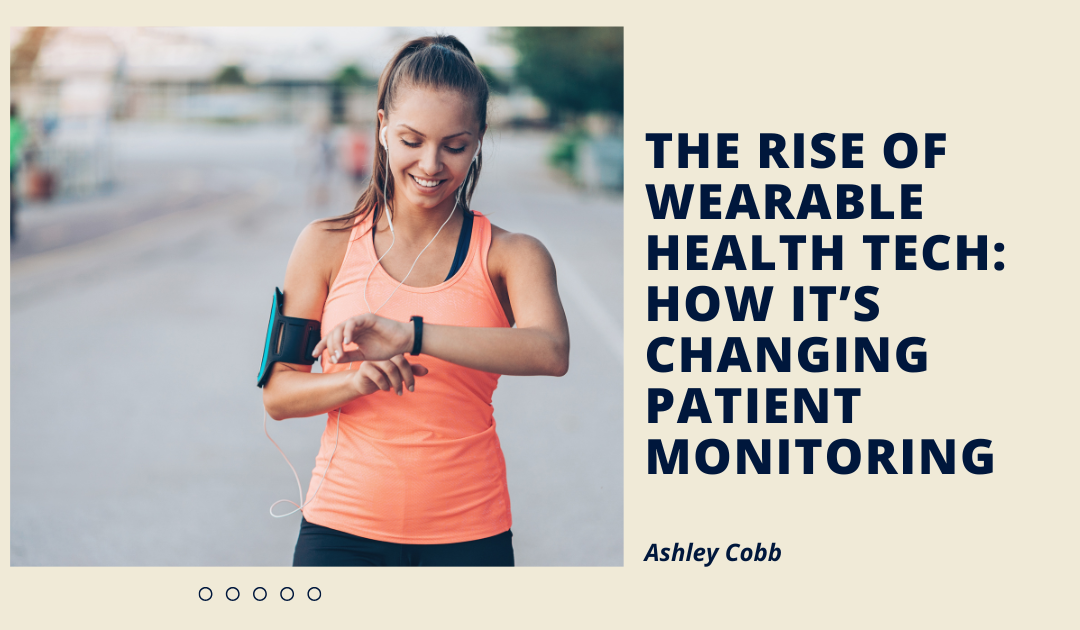The rapid advancement of technology has revolutionized the healthcare industry, with wearable health devices playing a crucial role in patient monitoring and preventive care. From smartwatches that track heart rates to continuous glucose monitors for diabetics, wearable health tech is transforming how individuals and healthcare professionals manage health conditions. These devices provide real-time data, enhance early detection of medical issues, and empower individuals to take charge of their well-being.
One of the most significant benefits of wearable health technology is its ability to monitor vital signs and detect potential health concerns before they become severe. Devices such as fitness trackers, smartwatches, and specialized medical wearables can measure heart rate, oxygen levels, blood pressure, and even sleep patterns. This continuous tracking helps individuals understand their health trends and allows doctors to intervene early if abnormalities are detected.
Chronic disease management has been greatly improved with the introduction of wearable health devices. Patients with conditions such as diabetes, heart disease, and respiratory disorders can now monitor their health in real time without frequent visits to the doctor. Continuous glucose monitors, for example, provide real-time blood sugar readings for diabetics, reducing the need for traditional finger-prick tests. Similarly, wearable ECG monitors can detect irregular heart rhythms, alerting both the patient and their doctor to potential cardiac issues.
Sleep tracking technology is another area where wearables are making a difference. Many people suffer from sleep disorders without realizing it, leading to fatigue, reduced productivity, and long-term health complications. Wearable devices that monitor sleep cycles, movement, and oxygen levels can help individuals identify sleep disturbances and make necessary adjustments to improve rest quality. This data can also assist doctors in diagnosing conditions such as sleep apnea and insomnia.
Remote patient monitoring has become more accessible with wearable health technology, allowing healthcare providers to track patients’ health from a distance. This is particularly beneficial for elderly individuals or those with mobility challenges who may have difficulty visiting a doctor frequently. Wearable devices can transmit real-time health data to medical professionals, enabling them to provide timely interventions and adjust treatment plans as needed.
The integration of artificial intelligence and machine learning in wearable health tech has further enhanced its capabilities. AI-powered devices can analyze large amounts of health data, identify patterns, and provide personalized health recommendations. These insights help individuals make informed lifestyle choices, such as adjusting exercise routines, improving sleep habits, or managing stress levels more effectively.
Wearable health devices are also proving valuable in detecting early signs of infections and illnesses. Some smartwatches have built-in temperature sensors that can detect fever-like symptoms, potentially identifying the onset of illnesses before symptoms become severe. This early warning system can be particularly useful during flu season or outbreaks of infectious diseases, allowing individuals to take precautions and seek medical advice promptly.
While wearable health technology offers numerous benefits, challenges remain in ensuring accuracy, data privacy, and affordability. Not all devices provide medical-grade accuracy, which can lead to misleading health readings. Additionally, concerns over data security and how personal health information is stored and shared must be addressed. As wearable technology continues to advance, regulatory measures and improved security protocols will be essential to protect user data.
The future of wearable health tech is promising, with innovations expected to enhance its capabilities further. From smart clothing that monitors muscle activity to AI-driven diagnostics embedded in everyday accessories, the potential applications of wearable technology are vast. As these devices become more accurate, accessible, and integrated into healthcare systems, they will play a crucial role in improving patient care, enhancing preventive health measures, and promoting overall well-being.
Wearable health technology is redefining patient monitoring by providing real-time health insights, supporting chronic disease management, and enabling remote healthcare services. As technology continues to evolve, these devices will become an integral part of modern healthcare, empowering individuals to take control of their health while improving the efficiency of medical care.

